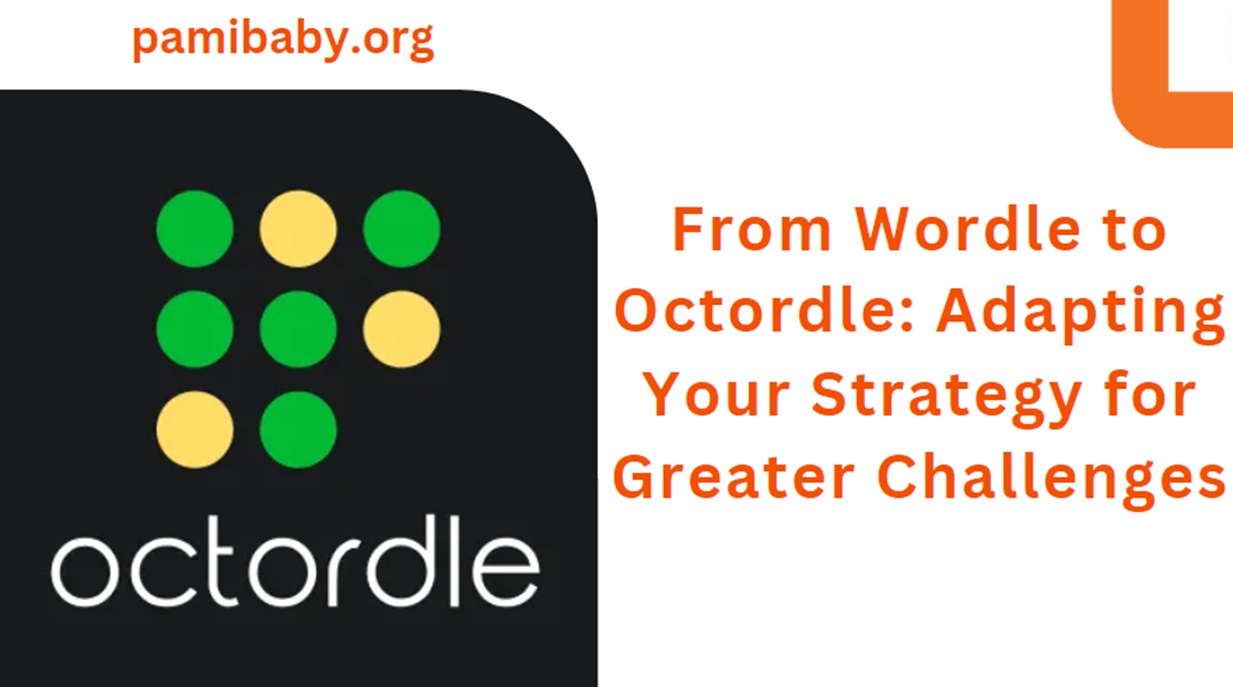Introduction
In recent years, word puzzle games have captivated millions of people around the world. Among these, Wordle has emerged as a particularly popular choice, challenging players to guess a five-letter word within six attempts. However, for those seeking a more intense challenge, Octordle offers a unique twist by requiring players to solve eight Wordles simultaneously. This transition from Wordle to Octordle necessitates a significant shift in strategy due to the increased complexity and demands on cognitive skills. This article delves into the nuances of this transition and explores why a change in strategy is essential when scaling from Wordle to Octordle.
Table of Contents
The Appeal of Wordle
Wordle’s appeal lies in its simplicity and the mental stimulation it provides. Players are given six chances to guess a five-letter word, receiving feedback in the form of colored tiles that indicate whether letters are correct and in the right position or correct but in the wrong position. This feedback loop is engaging and promotes a sense of achievement as players hone their deductive reasoning skills to solve the puzzle.
The game’s minimalist design and daily challenge format create a habit-forming experience. The social aspect, where players share their results on social media, further fuels its popularity. Wordle’s straightforward mechanics and limited attempts ensure that each game is quick, making it an ideal pastime for a broad audience.
The Introduction of Octordle
Octordle takes the Wordle concept and scales it up dramatically. Instead of focusing on one word, players must simultaneously solve eight five-letter words within thirteen attempts. This exponential increase in complexity transforms the gameplay experience, requiring a more sophisticated approach and greater mental acuity.
The primary challenge in Octordle is managing multiple puzzles at once. Each guess affects all eight boards, and the feedback must be interpreted across multiple contexts. This added layer of complexity demands enhanced multitasking, pattern recognition, and strategic planning.
Cognitive Load and Multitasking
One of the most significant changes when transitioning from Wordle to Octordle is the increased cognitive load. Cognitive load refers to the amount of mental effort required to process information. In Wordle, players focus on a single problem, which allows for deep concentration and systematic problem-solving. In contrast, Octordle requires players to divide their attention among eight problems simultaneously.
Multitasking, or the ability to handle multiple tasks at once, is crucial in Octordle. However, research has shown that multitasking can lead to reduced efficiency and increased errors. The human brain is not naturally equipped to handle multiple complex tasks simultaneously, and this can lead to cognitive overload. Therefore, developing strategies to manage this load is essential for success in Octordle.
Strategic Shifts: From Wordle to Octordle
To effectively transition from Wordle to Octordle, players must adopt new strategies that accommodate the increased complexity. Here are several key strategies to consider:
- Prioritization and Organization:
- In Octordle, it’s crucial to prioritize and organize information efficiently. Players should focus on identifying words with the highest probability of correct letters first. This approach helps in reducing the cognitive load by systematically narrowing down possibilities across all boards.
- Pattern Recognition:
- Advanced pattern recognition skills are vital. Players need to quickly identify common letter combinations and patterns that emerge across multiple boards. This helps in making educated guesses that are likely to yield useful feedback for multiple words simultaneously.
- Incremental Solving:
- Instead of trying to solve all words at once, players can adopt an incremental approach. This involves solving one or two words initially and using the information gained to assist in solving the remaining words. This method helps in reducing the complexity at each step and provides a clearer path to the solution.
- Efficient Feedback Utilization:
- Efficiently utilizing the feedback from each guess is crucial. Players should develop a system for quickly interpreting and applying feedback across all boards. This can involve mental or physical notes to track which letters are correct and their positions.
- Time Management:
- Given the increased number of attempts in Octordle, time management becomes essential. Players should avoid spending too much time on a single board and instead distribute their efforts evenly to maintain progress across all puzzles.
- Practice and Familiarity:
- Regular practice and familiarization with the game’s mechanics can significantly improve performance. As players become more accustomed to handling multiple boards, their ability to manage cognitive load and multitask effectively will improve.
Psychological Adaptation
Beyond cognitive strategies, players must also undergo psychological adaptation to handle the increased stress and frustration that can arise from the heightened complexity of Octordle. Patience, persistence, and a positive mindset are essential traits for success.
- Stress Management:
- The pressure of managing eight puzzles simultaneously can be stressful. Developing techniques for stress management, such as deep breathing exercises and taking breaks, can help maintain focus and composure.
- Growth Mindset:
- Adopting a growth mindset, where challenges are viewed as opportunities for improvement, can enhance resilience. Players should embrace the learning process and view each game as a chance to develop their skills further.
- Community Support:
- Engaging with the Octordle community can provide valuable support and motivation. Sharing strategies, discussing challenges, and celebrating successes with fellow players can create a sense of camaraderie and encouragement.
The Role of Technology
Technology plays a significant role in facilitating the transition from Wordle to Octordle. Various tools and applications can assist players in managing the increased complexity.
- Puzzle Trackers:
- Digital puzzle trackers can help players organize and keep track of their progress across multiple boards. These tools can automatically record feedback and highlight potential solutions, reducing the cognitive load on the player.
- Algorithmic Assistance:
- Advanced players might use algorithmic assistance to generate possible word combinations based on the feedback received. While this can enhance efficiency, it’s essential to strike a balance to ensure the game remains challenging and enjoyable.
- Mobile and Desktop Apps:
- Mobile and desktop applications designed specifically for Octordle can provide a more streamlined and user-friendly experience. These apps often include features such as hint systems, progress tracking, and customizable settings to cater to different skill levels.
The Educational Value of Octordle
Beyond entertainment, Octordle offers substantial educational value. The game promotes critical thinking, problem-solving, and cognitive flexibility, making it an excellent tool for mental exercise.
- Vocabulary Expansion:
- Regular play can expand players’ vocabulary by exposing them to a wide range of words. This can be particularly beneficial for language learners and individuals looking to enhance their language skills.
- Cognitive Development:
- Octordle stimulates various cognitive processes, including memory, attention, and executive function. Engaging in such mentally stimulating activities can contribute to overall cognitive health and delay cognitive decline.
- Educational Applications:
- Educators can incorporate Octordle into their teaching methods to make learning more engaging. The game can be used to teach spelling, vocabulary, and logical reasoning in a fun and interactive manner.
Conclusion
Transitioning from Wordle to Octordle represents a significant escalation in challenge and complexity. To succeed in Octordle, players must adopt new strategies that address the increased cognitive load and demands on multitasking skills. Prioritization, pattern recognition, incremental solving, efficient feedback utilization, and time management are crucial elements of a successful strategy.
Furthermore, psychological adaptation and stress management play essential roles in maintaining focus and motivation. The support of technology and the Octordle community can enhance the gaming experience, providing tools and encouragement for players.
Ultimately, Octordle offers more than just a challenging puzzle game; it provides substantial educational value and opportunities for cognitive development. Embracing the strategic shifts required to excel in Octordle can lead to a deeper appreciation of word puzzles and the mental agility they cultivate. As players navigate the complexities of Octordle, they not only enhance their problem-solving skills but also discover the joy of overcoming intricate challenges.









